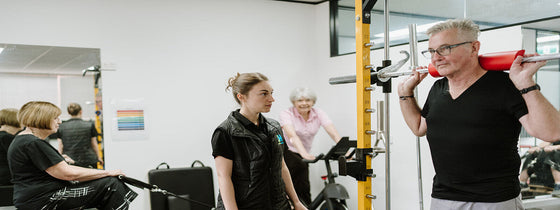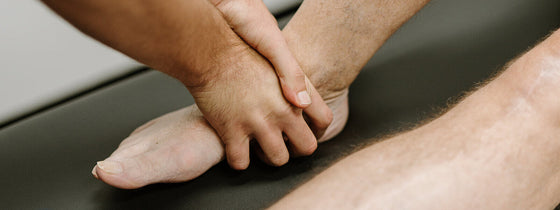Movement is Medicine
The human body is made to move, but more than 50% of adults don’t meet Australian physical activity guidelines. After two years of restricted movement from Covid lockdowns, it’s more important than ever to get our bodies moving. Whether it’s walking, pilates, boxing, yoga, swimming, weightlifting – it is crucial to keep active! After all, movement is medicine!
Unlike many medicines, which often target a single issue, movement has so many benefits. Regular physical activity is one of the easiest ways to reduce your risk for chronic disease and improve your overall quality of life. Physical activity, or exercise, can improve your health and reduce the risk of developing several diseases, like type 2 diabetes, cancer, and cardiovascular disease.
Make physical activity a priority to:
Movement not only leads to a healthier body, but also a healthier state of mind. Several studies have found that exercise helps manage depression and anxiety disorders, with people who exercise regularly experiencing fewer symptoms of depression and anxiety than those who do not exercise regularly. Trials have also shown that regular exercise, of moderate intensity, can be an effective adjunctive treatment by itself for both melancholic and non-melancholic depression.
Regular exercise may alleviate symptoms of depression by:
The National Physical Activity Guidelines for Adults and Older Australians recommends:
Here are our top tips for finding what exercise is right for you:
Choose exercise that you enjoy
One reason people find their exercise program falls by the wayside is boredom. If going for a walk gives you pleasure, turn that into a daily health and fitness opportunity. Love dancing around your kitchen? Find a local class in a new style to keep it fun. Like working out with equipment? Join your local gym. Do you like having a professional to keep you challenged, on track with your goals and motivated? Come to our group physio classes!
Choose more than one type of exercise
Your regular weekly exercise should include both aerobic exercise (walking, jogging, cycling, running etc) for cardiovascular health, plus strength-based sessions for muscular and bone health. By mixing up your movement routine, you add variety, work different groups of muscles, reduce the risk of injury and overload, as well as preventing monotony.
Choose options that fit your lifestyle and can become part of your routine
With days becoming busier, fitting exercise in can be a challenge. See if there are any elements to your day where you can ‘sneak’ some extra movement in – for example, getting off the bus or train a stop early could build a 20-minute walk into both ends of your day; or, walking around the office when you get a work call instead of sitting at your desk can massively increase your daily step count.
Increasing your level of physical activity doesn’t always mean doing formal exercise. Increasing the incidental activity in your day can itself bring health benefits. Where you can, choose stairs over lifts, or maybe park a little further from the supermarket this week.
The physical and mental benefits from increasing movement in your day are huge. Increases in daily activity can come from small changes made throughout your day, such as walking or cycling instead of using the car, or walking the children to school.
It’s a good idea to check in with a professional before embarking on an uptick in your physical load. Pre-exercise screening is used to assess your health status, fitness levels, establish goals and make sure your risk of injury is diminished. Our team of Physiotherapists are ready to help you reach your goals as quickly, and safely, as possible. Call us on (03) 9431 5955 for a pre-exercise screening and strength assessment today.

If you're experiencing back or neck pain with neurological signs and symptoms, a thorough neurological examination is crucial for accurate assessment and effective treatment. In this Optimal Tip learn more about what we mean by completing a neurological exam!

Squats, deadlifts, and calf raises are key movement patterns that should be part of every strength and conditioning program—regardless of age and activity level. These functional movements support joint health, improve posture and balance, and reduce the risk of injury while building strength where it matters most.

A ganglion cyst is a fluid-filled swelling that typically forms over a joint or tendon sheath, causing discomfort and pain, especially when pressing against nerves or joints. Proper assessment and treatment, including physiotherapy, are essential for managing symptoms and improving function in the presence of a ganglion in your hand, foot, or wrist.